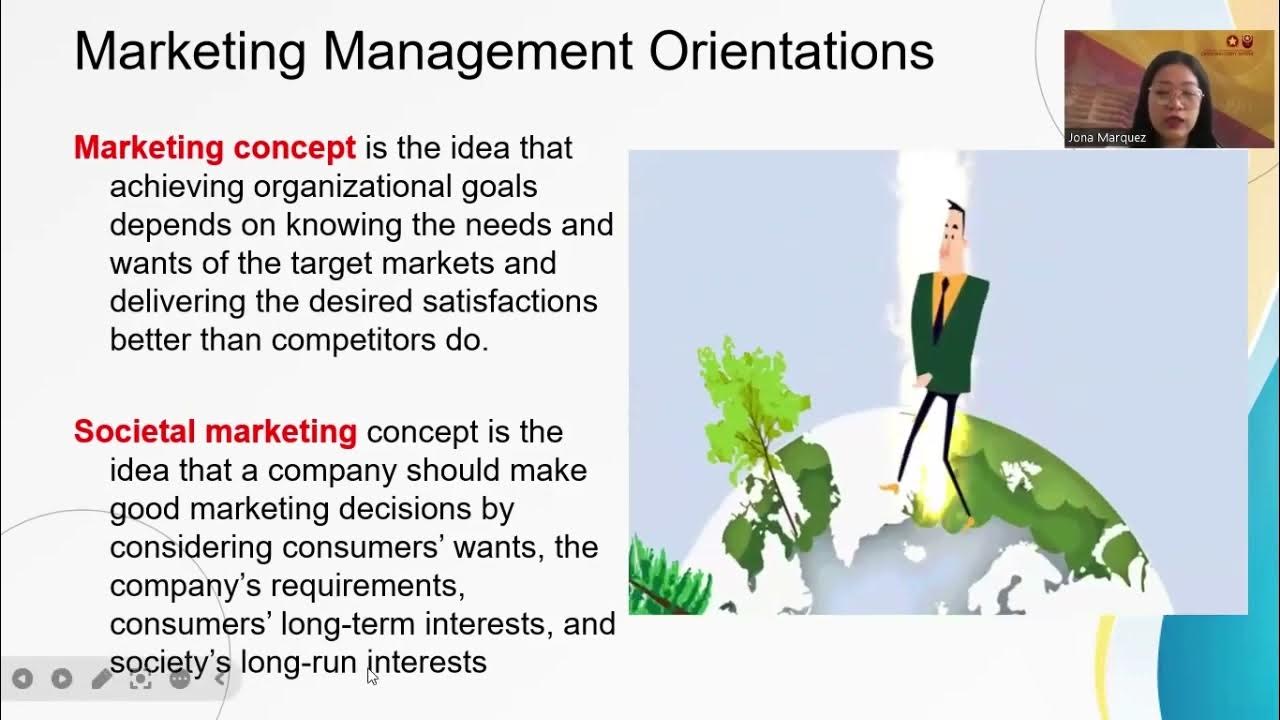Pemasaran syariah
Summary
TLDRThis lecture explores the concept of Sharia marketing management, emphasizing the importance of designing marketing strategies that align with Islamic principles. It covers the ethical aspects of marketing, such as honesty, fairness, transparency, and social responsibility, while ensuring products and services meet halal and tayib standards. The script also discusses the unique behaviors and needs of Muslim consumers, their decision-making processes, and how these factors influence marketing strategies. Ultimately, it highlights the role of Sharia marketing in promoting ethical business practices, building trust, and creating societal benefits while adhering to Islamic values.
Takeaways
- 😀 Sharia Marketing Management goes beyond labeling products as halal, integrating ethical considerations and Islamic principles into every step of the marketing process.
- 😀 The focus of Sharia marketing is not only on profit but also on creating value for customers and society while adhering strictly to Sharia restrictions.
- 😀 Key ethical principles in Sharia marketing include honesty, fairness, transparency, and social responsibility, all of which guide business practices.
- 😀 Sharia marketing requires marketing strategies to be designed with the intention of seeking Allah's approval, ensuring that fraud, manipulation, and illicit practices are avoided.
- 😀 Consumers in Muslim markets prioritize both halal and tayib (pure, beneficial, and safe) products, with a focus on high quality and ethical considerations.
- 😀 Purchasing decisions of Muslim consumers are influenced by factors such as religious beliefs, ethical considerations, fatwas from religious scholars, and recommendations from the community.
- 😀 Sharia-compliant marketing involves transparent and truthful advertising, avoiding false claims, competitor gossip, or misleading information.
- 😀 Fairness in pricing and business practices is essential in Sharia marketing, ensuring no monopolies or exploitation of consumers.
- 😀 The 4Ps of Sharia marketing—Product, Price, Promotion, and Place—must align with Islamic values, ensuring fairness, transparency, and social responsibility in all aspects of marketing.
- 😀 Effective Sharia marketing requires an understanding of Muslim consumer behavior, with factors like religiosity, social influence, and cultural values playing a significant role in purchase decisions.
- 😀 By segmenting, targeting, and positioning the right market segments based on Islamic principles, businesses can build strong relationships with Muslim consumers and promote their products as ethical and Sharia-compliant.
Q & A
What is the main objective of the course on Sharia marketing management?
-The main objective of the course is to enable students to design marketing strategies that align with Sharia principles and to analyze the unique market and behavior of Muslim consumers.
What does Sharia marketing management involve beyond selling halal products?
-Sharia marketing management is a comprehensive process of planning, implementing, and controlling the marketing of goods or services in accordance with Islamic principles. It focuses not only on profits but also on creating value for customers and society while adhering strictly to Sharia restrictions.
What are the key characteristics of Muslim consumers that influence their purchasing decisions?
-Muslim consumers prioritize halal and tayib products, which are not only permissible under Sharia law but also of high quality, safe, and beneficial. They are sensitive to ethics and tend to avoid products associated with unethical practices like usury, fraud, or environmental pollution.
What are the primary ethical principles guiding Sharia marketing strategies?
-Sharia marketing strategies are based on principles such as honesty, fairness, transparency, and social responsibility. They must ensure that every step brings blessings and does not violate Sharia law. This includes avoiding fraud, manipulation, and illicit practices.
How does Sharia marketing emphasize fairness in business practices?
-Sharia marketing emphasizes fairness by ensuring that all parties, including consumers, competitors, and employees, are treated equitably. This includes offering fair prices, avoiding monopolies, and encouraging healthy competition.
What is the significance of social responsibility in Sharia marketing?
-Social responsibility in Sharia marketing involves considering the impact of marketing activities on society and the environment. Promotions must be for beneficial products, support social activities, and be environmentally friendly.
What are the four Ps of the Sharia marketing mix?
-The four Ps of the Sharia marketing mix are: 1) Products that are halal and tayib, of good quality, safe, and functional in accordance with Islamic values; 2) Fair pricing that avoids fraud or exploitation; 3) Honest promotions free of unethical content; and 4) Distribution that ensures accessibility, integrity, and efficiency while avoiding waste.
What factors influence Muslim consumer behavior in the context of Sharia marketing?
-Muslim consumer behavior is influenced by individual factors like religious beliefs, level of religiosity, and personal values; social factors such as family, Muslim communities, and clerics; and cultural factors including traditions and local customs that align with Sharia law.
What role does religious guidance play in the decision-making process of Muslim consumers?
-Religious guidance plays a crucial role as Muslim consumers often rely on fatwas from religious scholars, community recommendations, and the Islamic image of a company when making purchasing decisions. They also verify the halalness of products and consider ethical reviews.
What is the conclusion of the lecture on Sharia marketing management?
-The lecture concludes that Sharia marketing management is a comprehensive approach that integrates Sharia principles into every element of marketing, from product design to distribution. It emphasizes values-based marketing, focusing on ethical conduct, societal benefits, and the pursuit of blessings from Allah while building trust and providing value to society.
Outlines

This section is available to paid users only. Please upgrade to access this part.
Upgrade NowMindmap

This section is available to paid users only. Please upgrade to access this part.
Upgrade NowKeywords

This section is available to paid users only. Please upgrade to access this part.
Upgrade NowHighlights

This section is available to paid users only. Please upgrade to access this part.
Upgrade NowTranscripts

This section is available to paid users only. Please upgrade to access this part.
Upgrade Now5.0 / 5 (0 votes)





